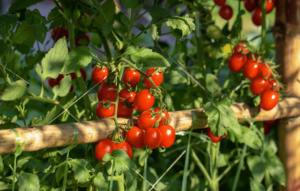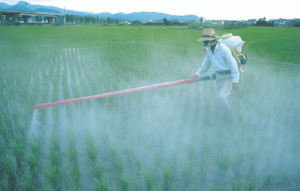Imagine strolling through a bustling farmers market on a sunny Saturday morning, the air filled with the scents of fresh produce, homemade bread, and blooming flowers. The vibrant colors and atmosphere not only draw us in but connect us to a tradition that has been a cornerstone of human society for centuries. Farmers markets, with their deep historical roots, have long served as essential hubs for communities, providing fresh, locally sourced goods while fostering social connections and economic vitality.
Today, as we face the challenges of modern life — ranging from health crises to economic instability and environmental degradation — the ethos of farmers markets is more relevant than ever. They are not just a nostalgic relic of the past but a vital component of a sustainable future. By offering an array of physical health benefits, bolstering local economies, and promoting environmentally friendly practices, farmers markets present a holistic solution to a lot of our contemporary issues.
In this blog, we will explore how farmers markets have historically supported communities, the many benefits they offer, and why embracing them is crucial for a healthier, more resilient future. From the superior nutritional value of fresh, seasonal produce to the economic advantages of supporting local farmers and the environmental gains of reduced food miles, the case for farmers markets is compelling. Come along as we look into the rich history and promising future of these vibrant community hubs.
Historical Importance of Farmers Markets
Farmers markets have a storied history that spans cultures and continents. From the bustling agoras of ancient Greece to the vibrant bazaars of the Middle East, these  markets have always been more than just places to buy food. They were social centers where people gathered to exchange goods, stories, and news, creating a sense of community and shared purpose. In medieval Europe, town squares hosted weekly markets where farmers, artisans, and merchants converged, laying the groundwork for the thriving market culture we know today.
markets have always been more than just places to buy food. They were social centers where people gathered to exchange goods, stories, and news, creating a sense of community and shared purpose. In medieval Europe, town squares hosted weekly markets where farmers, artisans, and merchants converged, laying the groundwork for the thriving market culture we know today.
In North America, farmers markets were integral to the early colonial economy. Settlers and indigenous peoples alike traded locally grown produce and handmade goods, fostering a symbiotic relationship that sustained communities. As towns and cities grew, so did the markets, becoming vital sources of fresh food and local products.
Evolution Over Time
However, the rise of industrial agriculture and the supermarket revolution in the 20th century

led to a decline in traditional farmers markets. The convenience and consistency of supermarket chains overshadowed the local market experience.Despite this, farmers markets never truly disappeared. They persisted in rural areas and small towns, serving as a lifeline for local farmers and a cherished tradition for many communities.
In recent decades, there has been a resurgence of interest in farmers markets, driven by growing concerns about food quality, environmental sustainability, and the desire to support local economies. This revival reflects a broader movement towards reconnecting with the sources of our food and valuing the benefits of fresh, locally grown produce.
As we look back on the historical significance of farmers markets, it becomes clear that they have always played a crucial role in sustaining and enriching communities. This enduring legacy sets the stage for their continued importance in our modern world, where the need for sustainable, community-centered food systems is more pressing than ever.
Physical Health Benefits
Nutritional Value
One of the most compelling reasons to embrace farmers markets is the superior nutritional value of locally sourced produce. Fruits and vegetables sold at farmers markets are typically harvested at their peak ripeness, ensuring they are packed with essential vitamins, minerals, and antioxidants. Unlike supermarket produce, which may be picked weeks before it reaches shelves and transported over long distances, farmers market goods often travel short distances from farm to market. This means less nutrient loss and fresher, more flavorful food.

Reduced Chemical Exposure
Additionally, the reduced need for preservatives and chemicals in locally grown produce means consumers can enjoy food in its most natural state. Many farmers

who sell at markets also practice organic, sustainable, or even regenerative farming methods, avoiding synthetic pesticides and fertilizers. This not only benefits theenvironment but also reduces the consumption of harmful residues that tend to accumulate in conventionally farmed produce.
Seasonal Eating
Farmers markets promote seasonal eating, a practice that aligns with natural growing cycles and offers numerous health benefits. Eating seasonally means consuming fruits and vegetables at their peak freshness and nutritional value. It also encourages a more varied diet, as consumers are exposed to different produce throughout the year. This diversity can lead to better overall nutrition and a lower risk of dietary deficiencies.
Seasonal eating also reconnects us with traditional diets and the rhythms of nature, fostering a deeper appreciation for the food we eat and the farmers who grow it. By eating what is in season locally, we can reduce our reliance on imported goods and enjoy a diet that is both healthier for us and more sustainable for the planet.
The physical health benefits of farmers markets are clear: they provide access to fresh, nutrient-dense food that supports overall well-being. By choosing to shop at farmers markets, we can nourish our bodies with the best that local agriculture has to offer, while also supporting practices that promote health and sustainability.
Economic Benefits
Supporting Local Economies
Farmers markets play a crucial role in supporting local economies by providing a direct sales outlet for farmers and producers. When consumers purchase goods at farmers markets, their money goes straight to the people who grew or made those products, rather than being funneled through large corporations. This direct transaction keeps money within the community, helping to sustain local businesses and ensuring that farmers receive a fair price for their hard work.
transaction keeps money within the community, helping to sustain local businesses and ensuring that farmers receive a fair price for their hard work.
Local markets also create jobs and opportunities for entrepreneurs. From bakers and artisans to small-scale farmers and food producers, farmers markets offer a platform for diverse local businesses to thrive. This economic activity stimulates the local economy, creating a multiplier effect that benefits the entire community.
Economic Resilience
Farmers markets contribute to the economic resilience of communities by reducing dependence on global supply chains and large-scale industrial agriculture. In times of economic uncertainty or supply chain disruptions, local markets can provide a reliable source of fresh food, ensuring food security for the community. This local focus helps build a more self-sufficient and resilient economy, capable of weathering external shocks.
Additionally, farmers markets can drive tourism and attract visitors, further boosting the local economy. Visitors often spend money not only at the market but also at nearby shops, restaurants, and attractions, creating a positive economic ripple effect.
The economic benefits of farmers markets extend beyond just financial transactions. They foster a sense of community and mutual support, creating a vibrant local economy that benefits everyone. By choosing to support farmers markets, we can help build a stronger, more resilient economy that prioritizes local businesses and sustainable practices.
Environmental Benefits
Reduced Carbon Footprint
One of the most significant environmental benefits of farmers markets is the reduction in carbon footprint associated with food transportation. Locally sourced goods travel much shorter distances from farm to market compared to the thousands  of miles often covered by supermarket produce. This reduction in “food miles” translates to significantly lower greenhouse gas emissions and decreased reliance on fossil fuels, contributing to the fight against climate change.
of miles often covered by supermarket produce. This reduction in “food miles” translates to significantly lower greenhouse gas emissions and decreased reliance on fossil fuels, contributing to the fight against climate change.
Furthermore, the packaging required for transporting food long distances is minimized at farmers markets. Fresh produce is typically sold with minimal packaging, often just reusable bags or containers brought by customers. This reduction in plastic and other packaging materials helps decrease waste and pollution, further benefiting the environment.
Sustainable Farming Practices
Farmers markets often encourage and support sustainable farming practices. Many vendors at these markets adhere to organic or regenerative agriculture methods, which focus on maintaining healthy soil, reducing chemical inputs, and promoting biodiversity. These practices not only produce healthier food but also help protect the environment by preserving natural ecosystems and reducing pollution.
By supporting farmers who use sustainable practices, consumers at farmers markets contribute to the promotion of environmental stewardship. This support can help shift broader agricultural practices towards more sustainable methods, as demand for responsibly grown produce increases.
Additionally, farmers markets build an important sense of connection between consumers and producers, raising awareness about the impacts of conventional farming and the benefits of sustainable alternatives. This education and awareness can drive further changes in consumer behavior and agricultural practices, leading to long-term environmental benefits.
The environmental benefits of farmers markets are clear: they help reduce our carbon footprint, minimize waste, and promote sustainable farming practices. By choosing to shop at farmers markets, we can make a positive impact on the environment and support a food system that prioritizes the health of our planet.
The Future of Farmers Markets
Farmers markets are experiencing a revival as more people become aware of the benefits of locally sourced food. Increasing consumer demand for fresh, organic produce and a desire to support local economies are driving this growth. Farmers markets are adapting with new innovations, such as online ordering and delivery services, making it easier for people to access local goods.

The Need for Policy and Community Support
For farmers markets to continue thriving, they need support from both policy and community initiatives. Local governments can help by providing funding, infrastructure, and promotional efforts. Community organizations can also play a role by organizing market events and educational programs, fostering a strong local food culture.
Education and advocacy are crucial for the future of farmers markets. Informing the public about the benefits of shopping locally and encouraging more people to participate can ensure these markets remain a vibrant part of our communities.
The future of farmers markets looks hopepful, but certainly needs our support. By continuing to embrace and promote these markets, we can create a healthier, more sustainable food system for generations to come.
Closing Thoughts
Farmers markets, deeply rooted in our history, have always been more than just places to buy food. They are vibrant community hubs that provide fresh, nutrient-dense produce, support local economies, and promote sustainable farming practices. As we face modern challenges such as health crises, economic instability, and environmental degradation, the relevance and importance of farmers markets are more pronounced than ever.
By choosing to shop at farmers markets, we nourish our bodies with superior quality food, support the financial well-being of local farmers and producers, and contribute to the health of our planet. These markets offer a holistic solution to many contemporary issues, embodying a return to simpler, more sustainable ways of living.
The resurgence of farmers markets reflects a growing movement towards reconnecting with our food sources and valuing the myriad benefits they offer. As we look to the future, it is crucial to support these markets through policy, community initiatives, and consumer education. By doing so, we can ensure that farmers markets continue to thrive, benefiting our health, our communities, and our environment.
look to the future, it is crucial to support these markets through policy, community initiatives, and consumer education. By doing so, we can ensure that farmers markets continue to thrive, benefiting our health, our communities, and our environment.
In embracing farmers markets, we honor a rich tradition while paving the way for a healthier, more resilient future. So, the next time you visit a farmers market, remember that you are not just buying fresh produce; you are participating in a grassroots (haha) movement that supports local economies, promotes sustainable practices, and fosters a stronger, more connected community.








